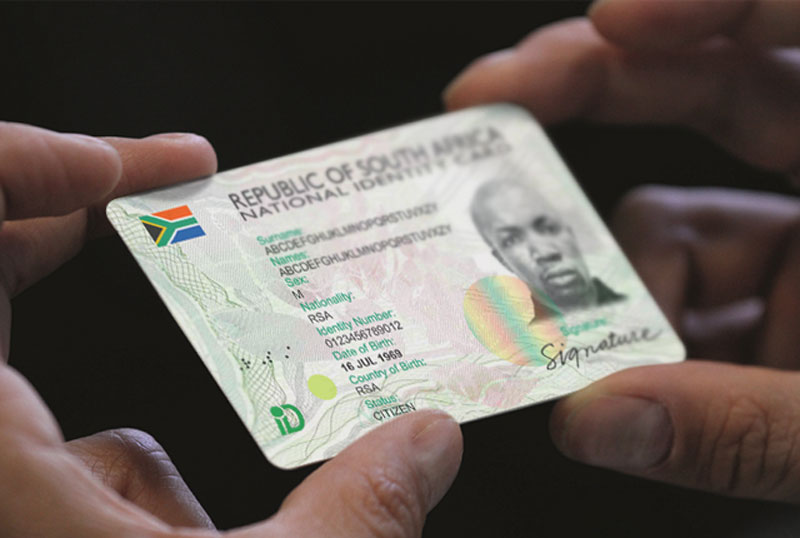Home Affairs to phase out green ID books – but rubbishes March deadline claim
The Department of Home Affairs has reiterated that it has no immediate plans to discontinue green bar-coded identity books.
Speaking at the Centurion Home Affairs office on Wednesday, director-general of Home Affairs, Mkuseli Apleni, said that the department was deeply concerned about false reports on the lifespan of the old ID books.
“These reports, which first appeared towards the end of 2017, masquerade as a notice from the Department of Home Affairs (DHA), and claim that 31 March 2018 is the termination date for using the old green-barcoded ID books. This had an effect of driving citizens, in great numbers, to Home Affairs offices to apply for smart ID cards in panic,” he said.
“At the time, we had responded swiftly to say such reports are false, and do not come from us. We are again confronted with the same incorrect reports, from the beginning of January 2018, circulating largely on social media.”
In a similar statement released in November, Home Affairs said that it wished to make it clear that the green barcoded ID book remains a legal form of identification and will continue to be until such time that the Live Capture System is rolled out to all Home Affairs offices to enable South Africans to apply for Smart ID cards at their nearest offices.
“The department has developed a plan to systematically phase out the green ID book and ultimately consolidate the restoration, common citizenship, identity and dignity to South Africans,” it said at the time.
Improving roll-out
Apleni said that when Home Affairs began the roll-out of smart ID cards in July 2013, its data showed that 38 million people were in possession of the old green books.
Following this, it conducted a number of studies so that it could set out a strategy for a smooth roll-out. “For instance we knew that one workstation can handle 28 card applications per day,” Apleni said.
“It takes 17 minutes on average to finalise the capturing of an application. On average, an office with 3 computers is expected to take in 84 applications per day. We were therefore able to estimate how many cards we could produce at a given time with the number of automated offices we had, that were equipped with live capture.”
“As a result, when we started, we had invited first time applicants and senior citizens to be the first to apply for smart ID cards, free of charge. This was based on our capacity at the time,” he said.
“For example, Centurion has only five workstations for this task, therefore in line with our norm, it can only produce 140 cards per day.
“With more offices, with automated systems, and reinforced by 14 bank branches on eHomeAffairs, we proceeded to extend coverage to other sections of the population, which sections, unlike first time applicants, had some form of identification, in the form of the green-barcoded ID books,” he said.
Apleni said that 184 of its 411 offices currently have live capture systems which can process applications for smart ID cards and passports, with 227 offices are still to be modernized. In addition, Home Affairs is currently in discussions with participating banks to increase capacity through additional bank branches.
“We are working on getting our systems fully automated, and are also developing a mobile solution to support the rollout of smart ID cards. Between 2013 and 2017, we were able to reach the seven million milestone on smart cards issued. With the 38 million people we had to cover, it should be clear these messages making the rounds, about March 2018, are devoid of truth, and should therefore be ignored,” he said.
Source: BusinessTech
Share on
Latest articles




















